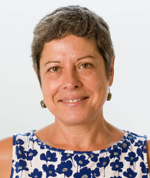In depth
The message from the squares

Elena Grau
Some episodes in history call for an explanation. They are moments of great intensity which shake our foundations and raise questions. A year ago on the Southern and Northern shores of the Mediterranean and, little by little throughout the world, diverse and spontaneous movements were born and exploded, transforming city squares into places of debate, dialogue, protest against a present which is unjust, violent, uncertain and fragile, and of discussion about a possible and desirable future.
During the preparation of this edition of Peace in Progress, we were moved by the need to understand the message coming from these squares. This edition of the magazine is the result of the process of reflection and the collaborative work of Oriol Leira, Stefano Puddu and Elena Grau. In order to begin to understand this process we have asked two people involved in this movement of the squares, Ahmed Eid in Tahrir and Ignacio Castro Rey in Sol, to share their first-hand experience with us. But it was also necessary to try to make a deeper and more general diagnosis of the events and understand what lies beneath the movements which are only symptoms. This latter issue is addressed by Stefano Puddu. In particular, we have pondered over one of the most surprising and encouraging aspects of the Arab spring and of the movements of the 15-m: the adoption of nonviolence as the predominant reference in the expression of discontent and protest. The article by Oriol Leira aims to outline the specific and distinguishing features of this version of nonviolence. The final text presents the views of people involved in nonviolent pacifism, which, from the contexts of different countries, assesses what the new features of this movement are, and their expectations for the future.
An understanding of the movements that have occupied the squares can help us to outline a way forward at a time of critical instability such as the present. It is a question of comprehending the situation, and not just to become observers, but rather to decide where to shift the onus of our action. For what happens in the future will also depend on what we do now.